Back when I was in college, it felt like everyone majored in Econ, or Econ and something else (CS in my case). At a school with no undergrad business program, Econ was the gateway major to that ultimate of career paths: financial services. You know, whatever it is that investment bankers do. I imagine we all figured knowing a thing or two about global markets and the velocity of money and all that would provide the appropriate foundation for a long and prosperous career in making it rain.
Nearly fifteen years later, unsurprisingly, finance is as popular as ever. I got to wondering, does that dogged pursuit of finance actually help in getting a job in the industry?
Also on Mediabistro


Does being interested in finance help or hurt you in the job search?
One of the questions we ask candidates up front is which of 26 job roles (things like finance, marketing, and software engineering) seem interesting. Candidates can pick as many or as few of these as they want, and a solid 10% of the pool says they want finance (we label as “Financial Analyst”).
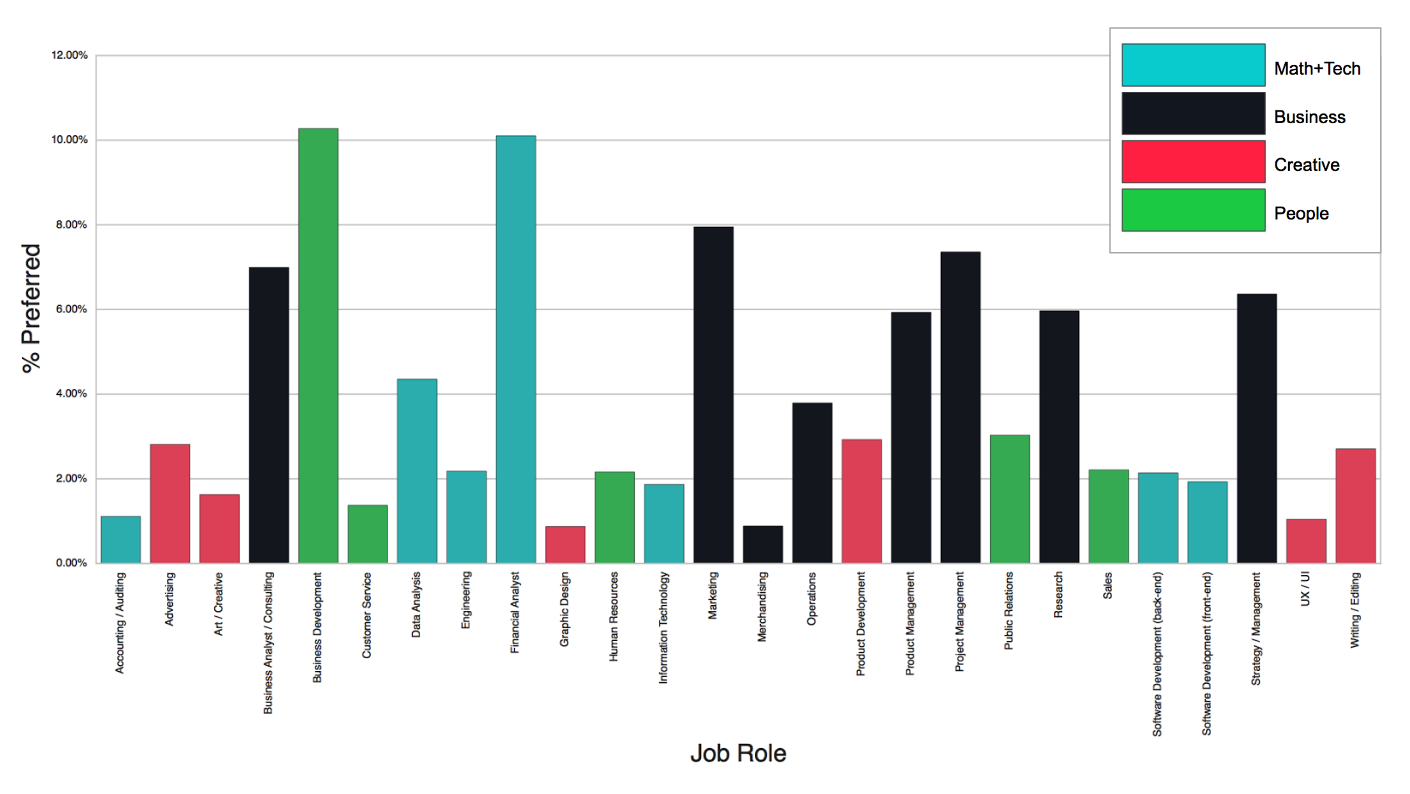
In fact, 6.89% of our candidates say Financial Analyst and nothing else! I suppose this isn’t too surprising: ~22% of our candidates pick just one job role. A similar number picks just Marketing. Most of the candidate pool, however, is open to other possibilities.
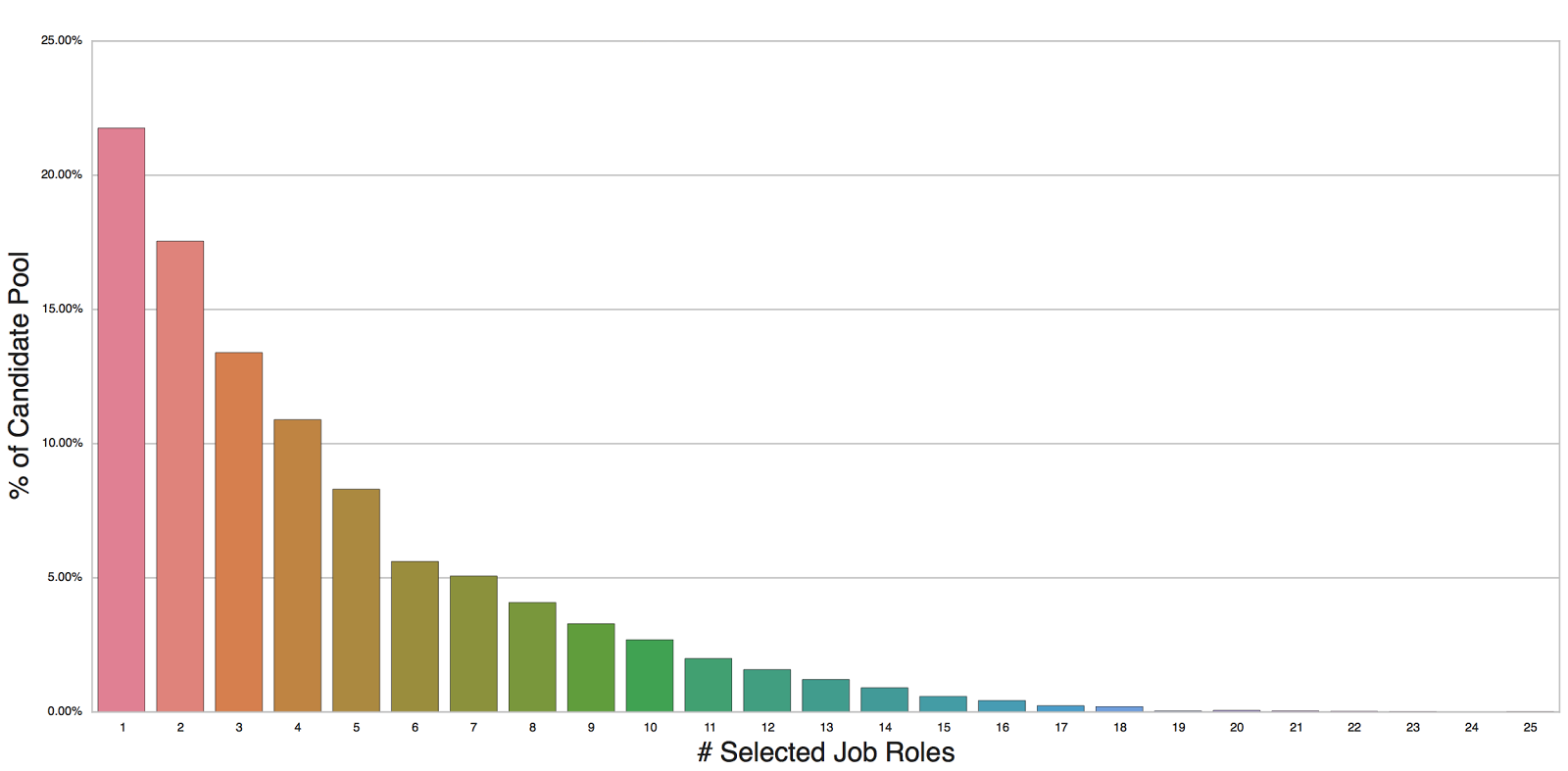
Given there are over 67 million ways of selecting job roles, it’s interesting to look at the correlations of those choices.
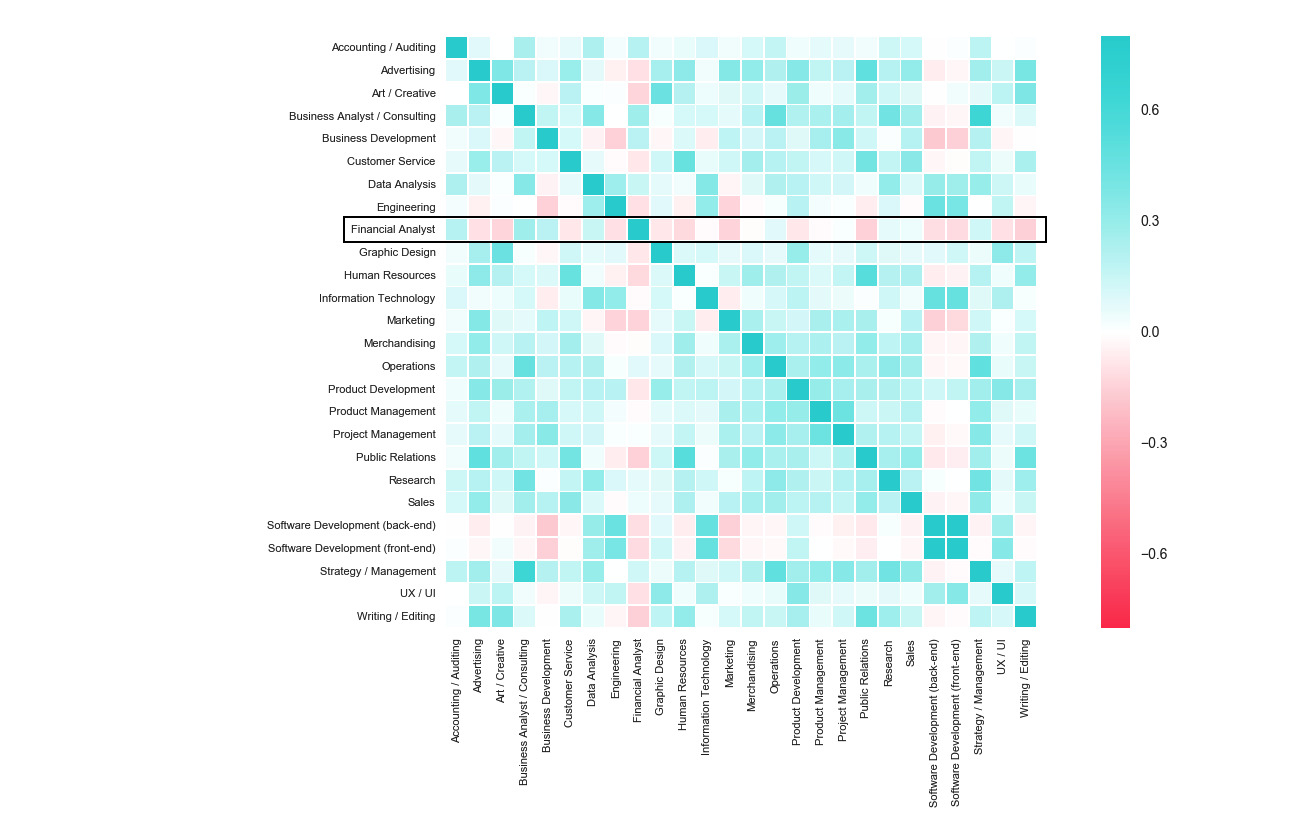
Following the Financial Analyst row across, we can see negative (red) correlations with pretty much everything except stereotypically business stuff such as accounting, or data analysis. Clearly, folks looking for finance jobs are generally not looking for HR or writing gigs.
To be fair, these correlations commingle our full-time candidates with the interns. Separating them apart, we can see similar interests most of the time, but pretty big gaps on a few categories, including finance.
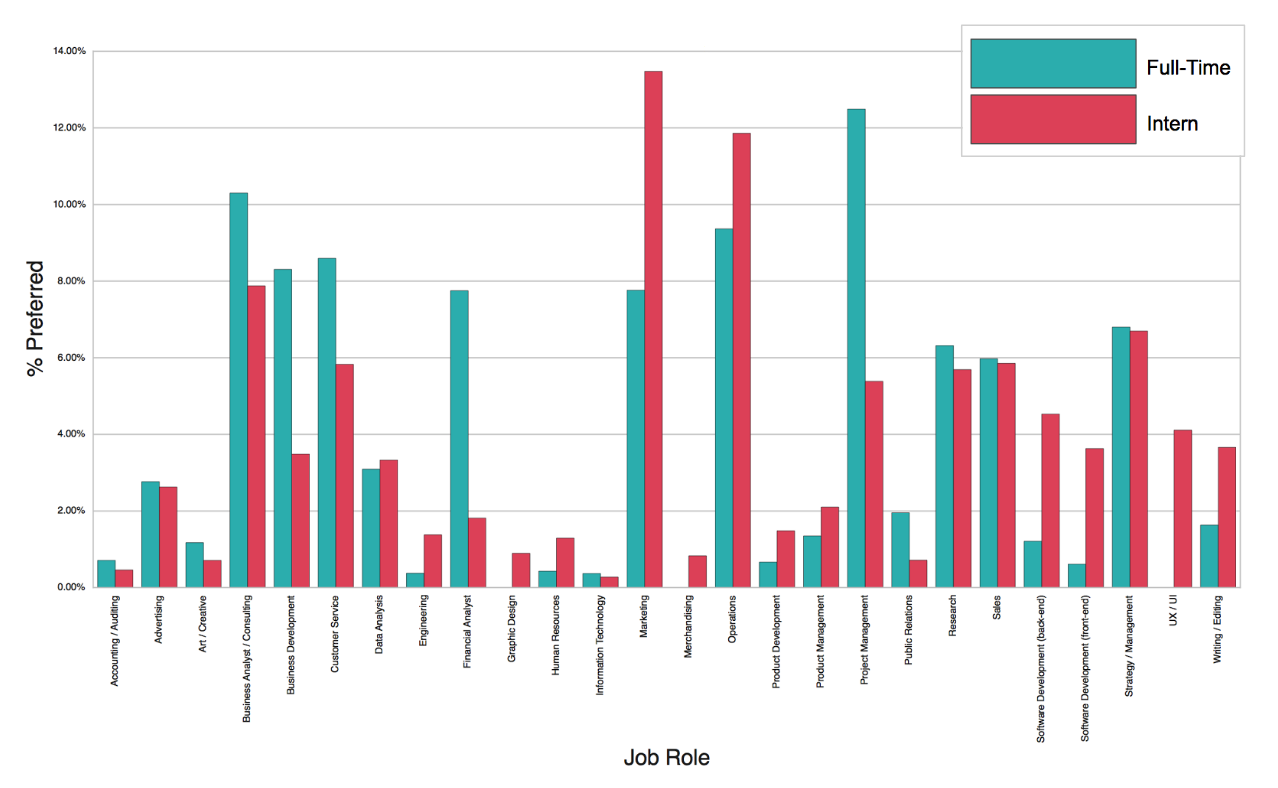
A relatively bigger chunk of the full-time pool opts in for finance roles. We’ve offered twice as many finance roles for full-timers as we’ve had for interns, so that likely has a big impact.
Interested in writing? Maybe your secret calling is finance!
As an alternate theory, when I was looking for internships in college, I was more interested in exploring varied opportunities before settling into a career following graduation. Perhaps this mentality still holds? In any event, here’s the surprising chart.

Of those full-time searchers who opt-in for finance jobs, it’s not the aspiring financiers who do best, but the writers and editors who’ve been most likely to see a Round-2 interview! (NB: past performance does not guarantee future results.)
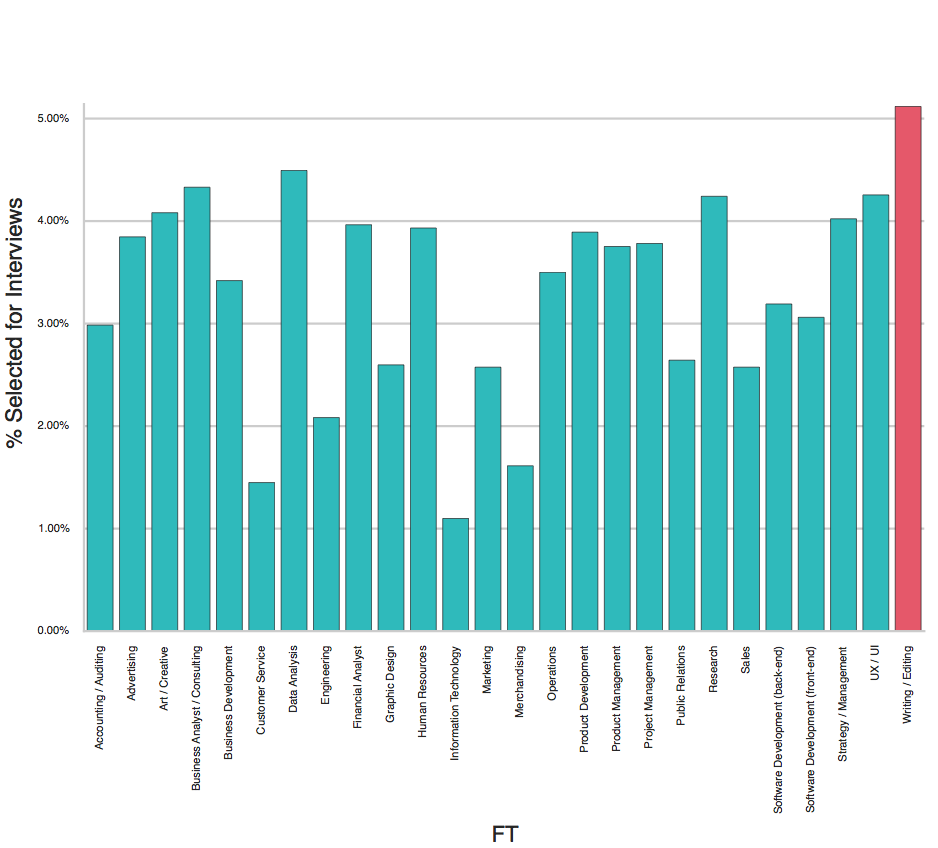
Part of this is certainly a numbers game. We don’t have many novelists opting into our finance opportunities; but those candidates who do must be pretty strong, as they get lots of interviews.
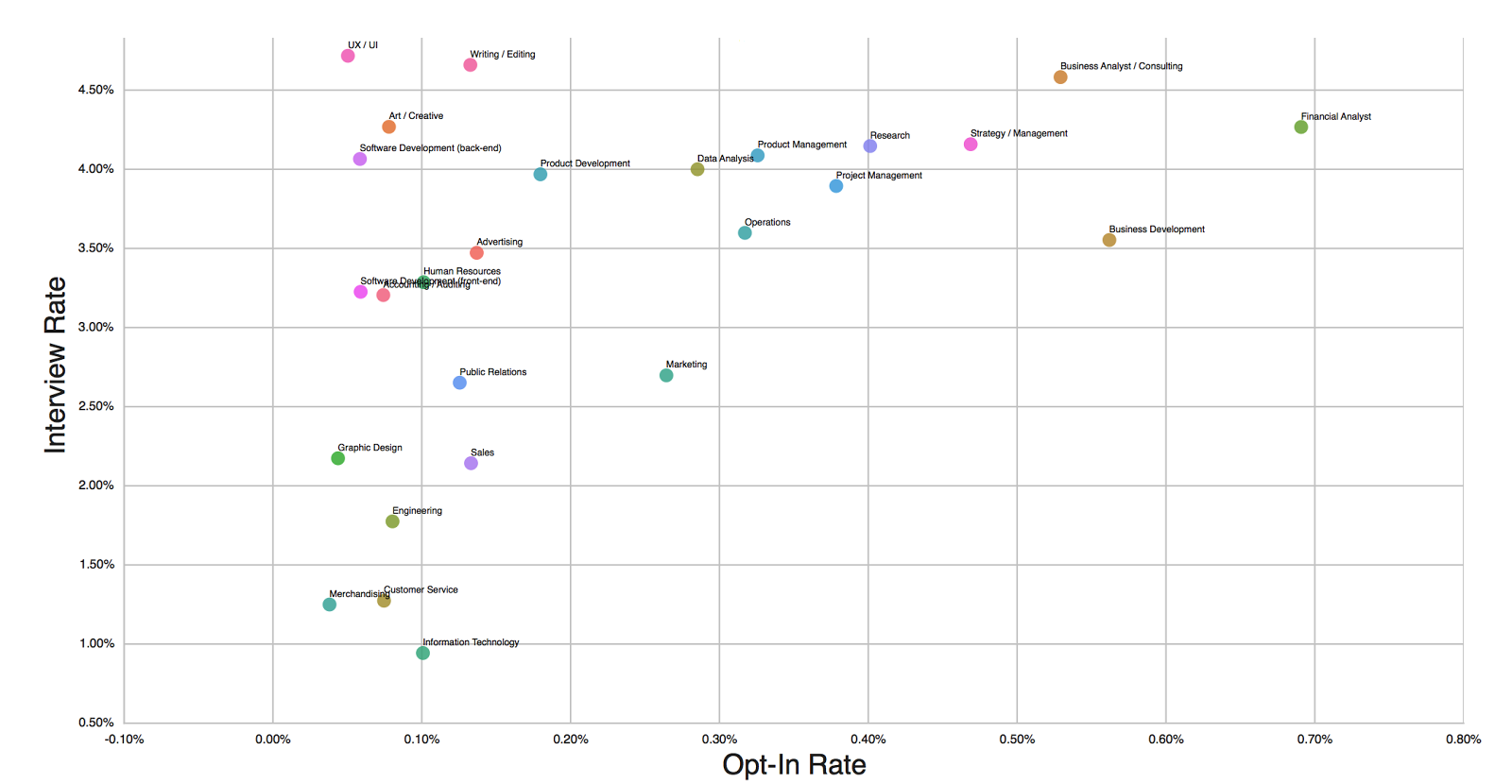
Of course, we can make charts tell whatever story we want, but our data shows that clients hiring for finance do not have a bias for candidates who want to work exclusively in finance. If we flip the data a bit, we can see that financial analysts are getting interviews, well, everywhere!

Conclusions
The moral here? Even financial analysts (and engineers) have to write, and sometimes product managers do marketing, and sometimes human resources does sales. So cast a wide net and don’t let the search parameters be a limiting factor. Your resume may bleed finance (or Econ), but don’t let that stop you from thinking about or being considered for a job one or even two derivatives over. And lastly, though we might not be offering traditional i-banking roles (yet!), if you’re early on in your college years, even if, ya know, you’re dead set on spending your twenties as a corporate slave, don’t be afraid to explore the physics or philosophy departments while you have the chance.
This analysis exemplifies how everyone on Scouted benefits from our data-driven approach to matching: candidates get presented with great opportunities that they may have ordinarily overlooked, yet that still fit well with their set of values and abilities; clients gain access to not just a capable, but a diversified roster of excited applicants; and we at Scouted learn how to make the job search and hiring process easier to navigate with greater and greater success rates for everyone on the platform.
[optinform]









